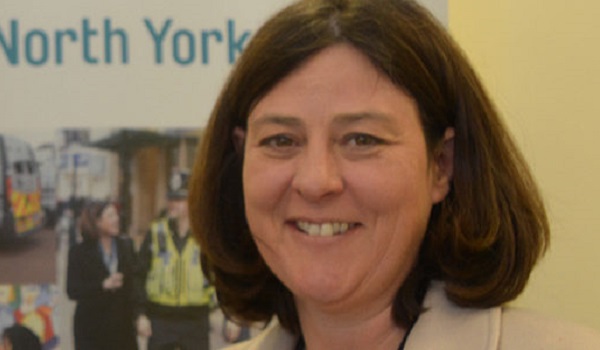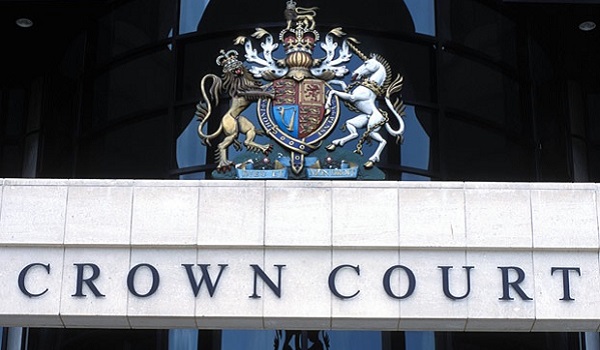APCC calls for new digital consent forms to be scrapped
The Association of Police and Crime Commissioners (APCC) has called for new digital disclosure consent forms to be withdrawn. The forms tell victims that “it may not be possible for the investigation or prosecution to continue” unless they hand over their mobile phones and give officers access to their messages, photographs, emails and social media accounts.
The APCC entered the debate after sexual assault campaigners condemned the forms, describing them as the equivalent of a digital strip search, and warned that the intrusive process could hinder rape cases and dissuade victims from coming forward.
North Yorkshire police and crime commissioner Julia Mulligan, who earlier this year revealed that she had been raped at the age of 15, said: “As someone with lived experience I can tell you that it is hard enough having to live through a sexual attack or rape, without having to expose oneself to this ‘in return’ for an investigation. And to be told you have no chance of justice without doing so is truly awful.”
APCC Victims Lead Dame Vera Baird said: “In our communities, rape and sex offence complainants are telling us that unless they grant unfettered access to their mobile devices, they are told that their case will not be proceeded with. There are also a large number of examples where material unconnected to the facts of the case and sometimes months or years before on entirely different topics has been handed by CPS to the defence and used at court to try to discredit the complainant. These examples are all from sexual assault and rape cases.
“Whilst we recognise that police must pursue all reasonable lines of inquiry and disclose anything that may undermine the prosecution or assist the defence, this form has been called a digital strip search by campaigners. CPS policy officials have admitted that demands for this kind of material have gone too far in the past. The way to get balance is surely to consult with victims’ representatives as well as those who defend.”
APCC Criminal Justice Lead David Lloyd added: “We have no doubt that this form, as it currently stands, should be withdrawn, or it is likely to result in a loss of confidence in the police, the CPS and the criminal justice system more broadly. Many technology companies have made clear that technology can help us with this issue – allowing prosecutors and police to have access only to relevant information on mobile devices.
“We are ready to work closely with the DPP, police chiefs and Attorney General to ensure that any work to improve the system around disclosure is appropriate and has the confidence and safeguarding of victims at its centre.”
The APCC’s call came as the National Police Chiefs’ Council (NPCC), Crown Prosecution Service (CPS) and College of Policing moved to address the growing backlash over the introduction of the forms.
Last week, the NPCC lead for disclosure T/Deputy Chief Constable Jeremy Burton, College of Policing lead for crime and criminal justice Dave Tucker, and CPS directors of legal services Sue Hemming and Gregor McGill, wrote to concerned groups and individuals inviting them to assist in considering whether further improvements could be made to the form itself or if further guidance could be given to support their implementation.
The letter sought to clarify when requests for access will be made. The digital consent forms can be used in any criminal investigations but are most likely to be used in rape and sexual assault cases, when complainants often know the suspect and there may be crucial evidence in their communication.
The letter said: “Police and prosecutors have a duty to pursue all reasonable lines of inquiry in every investigation, and to disclose any material that undermines the case for the prosecution or assists the case for the accused. This is a fundamental principle of our criminal justice system, which ensures that any trial is fair.
“With so much more of our lives being lived online, those reasonable lines of inquiry now frequently extend into the devices of complainants and witnesses, as well as suspects – particularly in cases where suspects and complainants know each other.
“We have developed processes to bring consistency to the way investigators search for relevant information on the digital devices of complainants and witnesses. Such searches will not be automatic, but where the investigating officer and prosecutor consider there to be a need to access information on digital devices to investigate a reasonable line of enquiry, they will explain this to the complainants or witnesses. They will be made aware of how their digital devices or records will be examined and how any data will be used and asked for their informed consent for this to happen.
“It is clearly wrong that victims should ever feel discouraged from reporting offences or seeking access to support services. We fully recognise that some complainants have had very difficult experiences in the criminal justice system, and we are seeking to address that by bringing clarity and consistency across the country.
“We believe such an approach is necessary and proportionate, but we recognise your concerns and take them seriously. We would welcome your involvement as we develop the next phase of guidance.
“We want to do all we can to make sure that complainants feel confident to report crimes, and to support investigations and prosecutions, and hope we can work together to achieve that.”
Metropolitan Police Service Assistant Commissioner Nicholas Ephgrave said he recognised the “inconvenient” and “awkward” nature of handing devices to police, adding: “I wouldn’t relish that myself. People who have been victimised and subjected to serious sexual assaults, for example, that’s an awful thing to happen to them and you don’t wish to make it worse by making their lives really difficult, but to pursue the offender, the way the law is constructed, we do have these obligations.”







